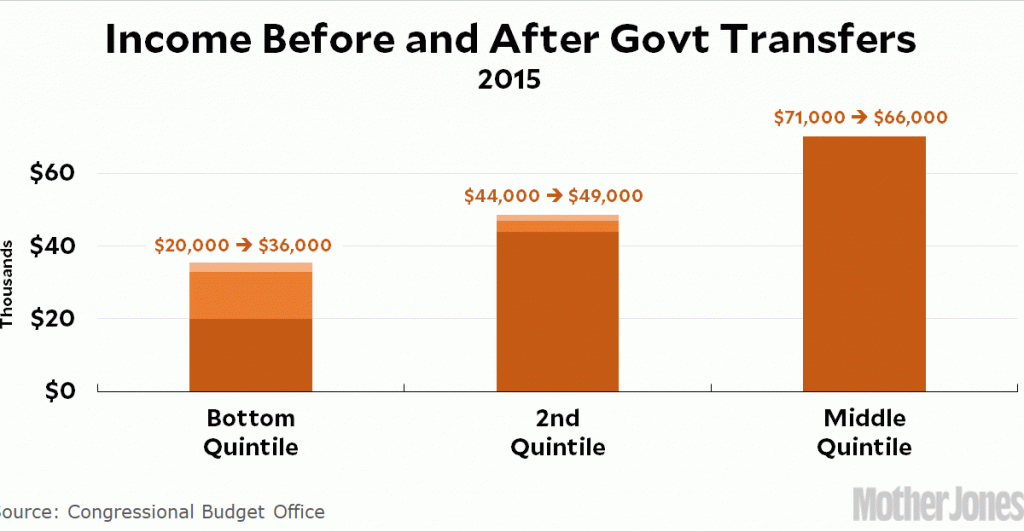Raw Data: Who’s Winning the War on Poverty?
As an old saw says, we’ve been fighting the war on poverty for half a century and poverty won. But is that true?
The poorest households have an average market income of $20,000. After means-tested assistance programs and tax credits are included, their income is $36,000. Working-class families see an increase from $44,000 to $49,000. Income groups above that are net losers, paying more in taxes than they receive in benefits.
We could do a lot more, but it looks to me as if poverty has taken a serious beating—and this doesn’t even count Social Security and Medicare, which have taken millions of seniors out of poverty. So why does it often seem as if poverty won the war? I can think of a few reasons:
It’s still around. This has not been the kind of unconditional surrender that Americans love. It’s a grinding effort that goes on forever, and on city streets poverty can often appear to be worse than ever.
It’s too complicated. Yes, a lot of money gets disbursed, but it’s broken up into dozens of programs that all require separate applications; have to be renewed constantly; and yo-yo around depending on the vagaries of income and congressional largesse. Even the recipients of government assistance probably don’t realize how much help they’re actually getting.
Medicaid. A fair amount of means-tested assistance comes in the form of Medicaid and CHIP, which doesn’t actually put money in anyone’s pocket or buy anyone’s dinner.
It helps the wrong people. There are plenty of folks who think of money going to blacks and Hispanics as little better than flushed down the drain. Needless to say, conservatives do their best to encourage this view.
Life is still hard for a lot of people, but don’t be overly pessimistic about how much we’ve accomplished. Poverty will never be completely eradicated, but we’ve done a helluva lot to put it on the run.





